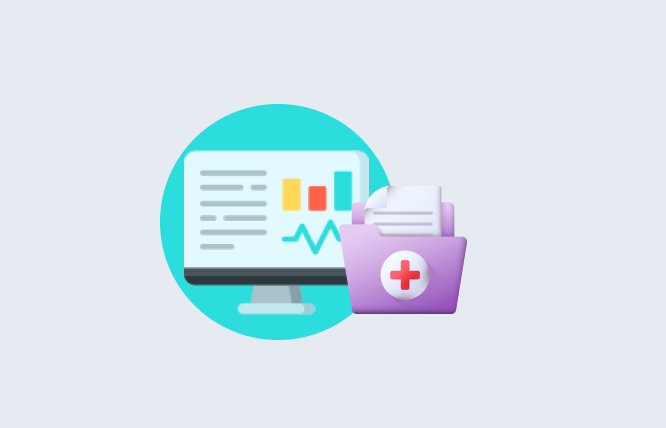Introduction
ERP for pharma is vital for today’s pharmaceutical companies. It streamlines operations with modules such as finance, CRM, MES, LIMS, and others. The implementation of ERP pharma demands careful planning, user training, system configuration, data migration, and post-implementation support. The integrated solutions ensure compliance, improve efficiency, and steer growth in the immensely regulated pharma industry present across the globe.
The pharmaceutical industry is truly an interesting entity in its own way. It operates in a highly regulated and complex environment. To navigate these challenges, a host of pharma companies are going for ERP pharma systems to ensure compliance, streamline operations, and drive growth.
This blog post takes a look at the vital role of ERP pharma in the industry, its implementation considerations, core benefits and key modules.
Getting to Know the Pharmaceutical Industry
The pharmaceutical industry is portrayed by patient safety, relentless emphasis on product quality, complex supply chains, and stringent regulations. ERP pharma solutions are crafted to address these special challenges and assist pharma companies in attaining their business aims:
| Challenge | Impact on Pharma Companies |
Supply Chain Complexity | Supply shortages, increased costs, and inefficiencies |
Regulatory Compliance | Possible legal issues, reputational risks, and high costs |
Data Management | Compliance risks, lack of visibility, and inefficient decision-making |
Product Safety and Quality | Brand damage, product recalls, and patient safety concerns |
If you need information regarding any of the points discussed in the table above, then contact FuturByte. We are a globally recognised serverless web development solutions provider that would love to give you more information. Feel free to ask us questions pertaining to the key subject discussed in this blog, such as regarding the best ERP for pharmaceutical industry.
Leading Benefits of ERP Pharma Systems
ERP pharma systems present a host of benefits to pharmaceutical companies, such as:
Driven Innovation and Growth
ERP pharms offer a platform for innovation by permitting data-driven decision-making, supporting research & development activities, and harnessing digital transformation. By leveraging the insights offered by the ERP pharma systems, pharma companies have the option to improve time-to-market, develop new products, and gain a competitive advantage.
Ensured Regulatory Compliance
Today’s pharmaceutical industry has to deal with a detailed web of regulations. ERP pharma systems can aid pharma companies in meeting these requirements by tracking product information, automating compliance processes, and generating audit-ready reports.
Is your organisation struggling with regulatory compliance and needs helpful advice on the matter? Just contact FuturByte. We are a reputed software developer known for manufacturing ERP solutions, and we would love to assist you. Don’t forget to ask us questions associated with the key subject discussed here, such as ERP for GMP (Good Manufacturing Practice).
Improved Operational Efficiency
ERP pharma solutions improve supply chain visibility, optimise inventory management, and streamline production processes. By offering real-time data and automating routine tasks, ERP pharma assists pharma companies in their attempts to improve overall operational performance, increase productivity, and decrease costs.
Key ERP Modules for Pharma
ERP pharma systems incorporate a host of specialised modules to properly address the multifaced and complex operations of the pharmaceutical industry. These modules tackle the unique challenges of the sector, ensuring data integrity, efficiency, and compliance.
Manufacturing Execution Systems (MES)
MES is a vital ERP pharma module at the core of pharmaceutical production. It offers real-time control and visibility over the manufacturing processes, from raw material intake to finished product packaging. Important functionalities here include:
Data collection and analysis
Getting and analysing production data to identify bottlenecks, trends, and opportunities for improvement.
Quality control
Integrating quality checks and inspections into the production process, bringing down rejections and defects.
Equipment and resource management
Scheduling maintenance, optimising equipment utilisation, and preventing downtime.
Batch and process management
Tracking and managing production batches, making sure there is adherence to defined parameters and procedures.
If you need further elaboration regarding any point associated with MES and how it can best serve your organisation, then contact FuturByte. We are a reputed microservices design and development company that will give you wonderful advice. You may also ask us regarding topics associated with this blog, such as custom ERP solutions for pharmaceuticals.
Quality Management Systems (QMS)
The pharmaceutical industry gives supreme importance to quality. The QMS modules in ERP pharma systems make sure there is compliance with regulatory standards and maintain quality throughout the lifecycle. Essential functionalities include:
Risk management
Identifying, mitigating, and assessing possible quality risks.
Compliant management
Investigating and tracking customer complaints, preventing recurrence and implementing corrective actions.
Audit management
Planning, conducting, and documenting both external and internal audits to assess compliance.
Document management
Centralised management and storage of quality-related documents, such as change control records, specifications, and SOPs.
Do you want to know how document management can serve your organisation well? Contact FuturByte. We are a famed cloud POS system provider that can be of assistance to you. Feel free to ask us questions about the main subject of this blog, such as pharma supply chain management.
Supply Chain Management (SCM)
Proper supply chain management is vital for pharmaceutical companies to manage costs, meet customer demands, and ensure interrupted production. SCM modules in ERP pharma systems offer the following:
Inventory management
Optimising stock levels, tracking product inventory levels, and preventing overstocking and stockouts.
Logistics and distribution
Coordinating warehousing, transportation, and delivery of products to customers.
Procurement
Managing supplier relationships, supplier performance, and purchase orders.
Demand planning and forecasting
Analysing customer demand and market trends to optimise inventory levels and production planning.
Laboratory Information Management Systems (LIMS)
Laboratory operations are vital for quality control, research and development, and production in the pharmaceutical industry. LIMS modules present in ERP pharma systems ensure data integrity and streamline laboratory workflows. Important features include:
Data management and reporting
Analysing, managing, and storing laboratory data, generating reports for research and quality purposes.
Instrument integration
Connecting laboratory instruments to the system for automated data analysis and transfer.
Sample management
Tracking samples for collection to analysis, including chain-to-custody management.
Customer Relationship Management (CRM)
The creation of robust and reliable relationships is vital for the entire pharmaceutical industry. CRM modules in ERP pharma systems assist in tracking sales performance, managing customer interactions, and improving customer satisfaction. Important functions include:
Marketing automation
Executing targeted marketing campaigns and measuring their effectiveness.
Customer service
Taking care of customer returns, complaints, and inquiries efficiently.
Sales force automation
Generating sales reports, tracking opportunities, and managing sales activities.
Financial Management
Reliable financial management is vital for the general success of pharmaceutical companies. Financial modules present in ERP pharma systems offer detailed financial capabilities, such as:
Financial reporting
Generating financial statements and reports for regulatory and management purposes.
Budgeting and forecasting
Creating and managing budgets, monitoring variances, and forecasting financial performance
Accounting
Managing accounts receivable, payable, and general ledger.
Implementing ERP in a Pharma Setting
The implementation of an ERP pharma system is a thorough undertaking that demands thoughtful planning and execution. There are a host of key factors that must be considered here, such as:
Project Planning and Scoping
Defining project objectives and goals
Outline the required outcomes of the ERP implementation in a clear manner, such as cost reduction, better compliance, and improved efficiency.
Analyse the existing business processes
Analyse the existing processes to identify areas for improvement and optimisation.
Select ERP vendor and solution
Evaluate a host of ERP pharma vendors and solutions depending on implementation support, industry experience, and functionalities.
Data Migration
Data preparation and cleansing
Ensure data consistency and accuracy prior to migrating it to the new ERP system.
Create data migration plan
Define data conversion and mapping rules to transfer data from legacy systems to the ERP system.
Perform data migration
Conduct data migration in phases, testing and validating data integrity across the process.
System Configuration
Perform ERP system customisation
Make sure to configure the ERP system to match the organisation’s particular business requirements and processes.
Develop workflows and approvals
Describe workflows associated with vital business processes, such as authorisations and approvals.
Master data management
Make and maintain precise master data, such as supplier data, customer data, and product information.
User Training and Adoption
Create training materials
Develop detailed training materials tailored to a host of user responsibilities and roles.
Perform user training
Offer hands-on training to end-users, covering best practices and system functionalities.
Change management
Address resistance to change and employee concerns, harnessing a positive attitude towards the latest system.
Go-Live and Post-Implementation Support
Create a go-live plan
State the steps involved in data migration and system cutover.
Test system functionality
Perform detailed testing to guarantee the ERP system is functioning as required.
Offer post-implementation support
Present existing support to users, offering training and addressing issues as required.
When pharma companies follow the above-mentioned steps and seriously consider the unique challenges associated with the pharmaceutical industry, they can successfully apply ERP pharma systems and enjoy the benefits of superior decision-making, compliance, and efficiency.
Concluding Remarks
ERP pharma systems are widely considered to be vital tools for those pharmaceutical companies that are looking to drive innovation, ensure compliance, and optimise operations. By leveraging the abilities of ERP pharma solutions, today’s pharmaceutical companies can improve product quality, successfully deal with industry challenges, and offer better patient outcomes.
Finally, if you believe that you need to have a better understanding of any of the information stated in this blog, then feel free to contact FuturByte. We are a globally recognised ERP software development company that will be of great assistance to you. Feel free to ask us a host of questions associated with the key topic discussed here, such as ERP for biotech.
Frequently Asked Questions
Pharma ERP makes sure that there is adherence to strict regulations governing drug safety and efficacy. This prevents legal issues, safeguards public health, and maintains a brand reputation.
Manufacturing ERP improves inventory management, streamlines production processes, offers valuable data for informed decision-making, and enhances quality control. This causes better product quality, decreased costs, and increased efficiency.
Yes, cloud Point of Sale (POS) systems can integrate with pharma ERP. This goes on to offer improved demand forecasting, inventory updates, and real-time sales data, leading to better customer satisfaction and stock management.
Have questions or feedback?
Get in touch with us and we‘l get back to you and help as soon as we can!




